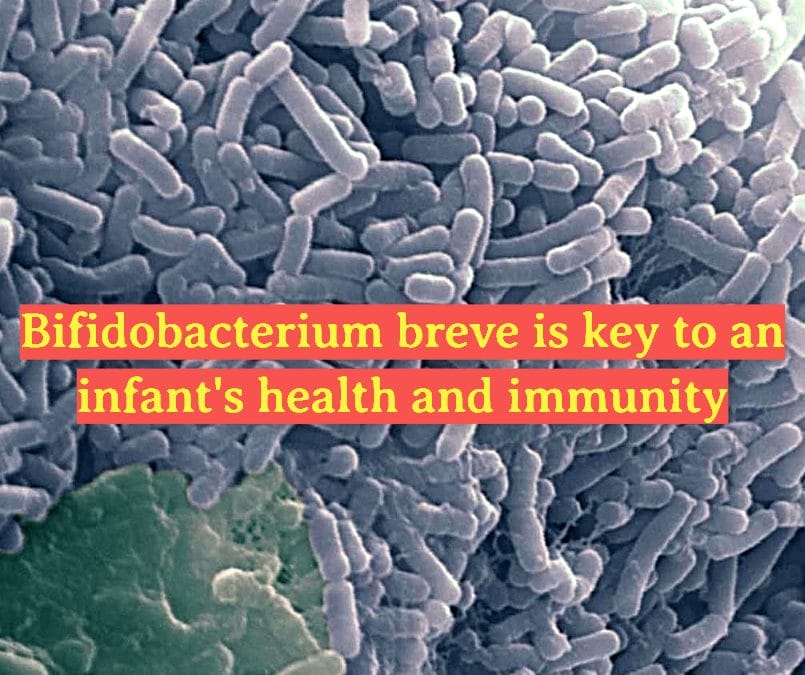Bifidobacterium breve, commonly known as B. breve, plays a crucial role in developing a baby’s gut health. This beneficial bacterium is genetically adapted to utilize the nutrients found in breast milk entirely. Its presence in the gut is essential for establishing a solid foundation for a baby’s immune system and overall well-being.
How Bifidobacterium breve Utilizes Nutrients in Breast Milk
Breast milk is often referred to as the perfect food for infants, and Bifidobacterium breve is one reason why. This specific strain of probiotics is uniquely equipped to break down the complex sugars in breast milk, known as human milk oligosaccharides (HMOs). These HMOs are indigestible by the infant but serve as a food source for B. breve, allowing the bacteria to thrive and multiply in the gut.
Bifidobacterium breve’s ability to metabolize HMOs means it helps produce short-chain fatty acids, which are vital for maintaining a healthy gut environment. These fatty acids lower the gut’s pH, making it less hospitable to harmful bacteria and pathogens.
Bifidobacterium breve as a Protector of the Infant Gut
One of the most significant benefits of Bifidobacterium breve is its ability to block potentially damaging pathogens from colonizing a baby’s gastrointestinal (GI) tract. The early colonization of beneficial bacteria like B. breve creates a protective barrier, preventing harmful microorganisms from taking hold and causing infections or illnesses.
Studies have shown that infants with higher levels of Bifidobacterium breve in their gut microbiome are less likely to develop conditions such as diarrhea and necrotizing enterocolitis, a severe intestinal disease that can be life-threatening. B. breve achieves this protective effect through various mechanisms, including the production of antimicrobial substances and the competition for nutrients that pathogens would otherwise use to grow.
The Importance of Bifidobacterium breve in Infant Immune Development
The presence of Bifidobacterium breve in an infant’s gut is also crucial for developing a robust immune system. This bacterium interacts with the gut’s immune cells, helping to train the immune system to distinguish between harmful and harmless substances. As a result, B. breve reduces the risk of allergies and autoimmune diseases later in life.
Moreover, Bifidobacterium breve’s ability to produce specific vitamins and essential nutrients contributes to the baby’s overall health and growth. B. breve is not just a passive resident in the gut but an active participant in ensuring the infant’s health.
Conclusion
Bifidobacterium breve is a vital component of a healthy infant gut microbiome. Its unique ability to utilize nutrients in breast milk and protect against harmful pathogens makes it an essential ally in early-life health. By supporting the immune system and promoting a balanced gut environment, B. breve lays the groundwork for long-term well-being, making it an indispensable part of an infant’s development.
References:
Why Are Bifidobacteria Important for Infants?
Intestinal ‘Infant-Type’ Bifidobacteria Mediate Immune System Development in the First 1000 Days of Life
Gut microbiome: Meet Bifidobacterium breve, keeping babies healthy
